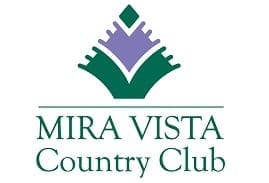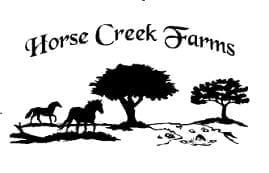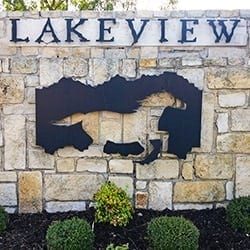Perimeter Fencing for Your Community in Dallas Fort Worth
You likely recognize the value of creating a community. More than a group of residential homes, a neighborhood has borders where people gather in shared spaces: sidewalks, parks, pools, clubhouses, cul-del-sacs and recreational areas.
Protecting that community and making it feel exclusive, safe, and private for many homeowners is what perimeter fencing and gates contribute. Depending on the amenities in your DFW neighborhood, fencing may already be a requirement in some areas. Pool fencing, playgrounds and other community spaces need controlled access to reduce liability and receive local permits. Consider adding beautiful fences and gates around a perimeter to be considered a Dallas Fort Worth “gated community”.
Our fencing materials include wood fences, vinyl fences, wrought iron fences, chain link fencing, composite fences, metal fences, and aluminum fencing. Our gate materials include wood gates, wrought iron gates, vinyl gates, chain link gates, automatic gates and openers, driveway gates, and custom gates.
Benefits of Gated Communities
- Studies show home values increase (as high as $30,000!) in a gated community.
- Insurance rates decrease for landlords in a condo, townhome and apartment community and for homeowners in a private neighborhood with barrier fencing and gates.
- Fencing adds to the design, curb appeal, and brand of the neighborhood and compliments landscaping. Extend a grand entrance with stone columns throughout the property.
- Perimeter fencing can be added early, before all lots are developed. Protect construction equipment and materials with the privacy a perimeter fence provides. Command a higher starting price for land in your community.
- Reduce road noise and urban traffic. Depending on the location, noise can be a factor and contribute to fewer buyers and lower asking prices.
Types of Private Communities
- Planned neighborhoods
- Master planned communities
- Golf course and lakefront properties
- Senior living and assisted living communities
- Luxury condo and townhome areas
- Urban and Luxury apartment complexes
- HOA (Homeowners Associations)
Fencing Supply vs. Subcontract to Fence Company
As a general contractor in the business of building homes, your first thought might be how hard is it to build a fence? In truth, it’s a trade and specialty as old as the art of home building. For the same reason you subcontract roofing and HVAC, fencing and gates are another consideration.
While you certainly can partner directly with fence and gate manufacturers, the volume of fencing you would purchase in a year is far less than a fencing company. Better materials at a lower cost is possible by working with Buzz Custom Fence. We partner directly with manufacturers and are a fence supply, installer, contractor and designer. We are exclusive distributors for several lines of fencing/gates which eliminates one level of a middle man thus saving you money and receiving a one of a kind fence. In addition, our access control team installs beautiful gates powered by electric and solar with easy access options for residents from key fobs to codes and smartphone control.
Buzz Custom Fence is licensed and permitted to work in all areas of Dallas Fort Worth and throughout North Texas and our team has experience on large projects.
Clients in the Dallas Fort Worth Area





FAQ for Home Builders & Developers Fencing Services
Gates for houses and perimeter fencing enhance the sense of community by defining borders and shared spaces such as parks, pools, and recreational areas. Driveway gates provide convenience and security, ensuring that only authorized vehicles can access the property. Automatic gates, in particular, offer added convenience, allowing homeowners to open and close the gate with the push of a button. Whether you’re looking for wrought iron gates, wood gates, or other materials like aluminum, Buzz Custom Fence has a variety of options to suit your design needs and budget.
Driveway gates can significantly increase home values. They offer reduced insurance rates for homeowners, enhance the design and curb appeal of the neighborhood, and provide a sense of exclusivity. Automatic gates, whether sliding or swinging, offer convenience for cars entering and exiting the property. With security in mind, these gates ensure that only authorized vehicles can pass, protecting your family, pets, and property.
Installing driveway gates, especially automatic gates, requires expertise. By subcontracting, builders can ensure quality installation and potentially access better materials at lower costs. Buzz Custom Fence offers a range of fencing solutions, from design to installation. Whether you’re looking for low maintenance materials like metal or traditional wood, they have options to suit every home’s style and needs.
Buzz Custom Fence collaborates closely with developers to understand their specific needs. With exclusive partnerships with manufacturers and access to a variety of materials, they ensure that each fence and gate is built to last, meeting both aesthetic and functional requirements. Whether you’re looking for security features or a particular design style, they have options to achieve your project goals.
Buzz Custom Fence offers a range of sustainable and eco-friendly fencing options. From recycled materials to solar-powered gates, they are committed to providing green solutions that align with the values of modern communities. They also offer a variety of styles and materials to fit any budget, ensuring that every home can have a fence or gate that meets its needs without breaking the bank.
Driveway gates, especially those made of materials like wrought iron, wood, or aluminum, not only provide security but also elevate the aesthetic appeal of a property. They create a grand entrance, adding to the home’s curb appeal. Whether you’re looking for sliding gates for easy access or more traditional styles, these gates can be customized to suit the design and style of the home. Moreover, with the convenience of automatic gates, homeowners can effortlessly control access to their property, ensuring that only authorized cars and vehicles pass through.
When considering gate installation, homeowners should factor in the cost of materials, design, and installation. The price can vary based on the type of materials chosen, with options ranging from affordable aluminum to more expensive wrought iron. The complexity of the design, whether it’s a simple style or a more intricate pattern, can also influence the cost. Additionally, automatic gates might require an electrician for proper setup. It’s essential to check with professionals like Buzz Custom Fence to get a comprehensive understanding of the project’s needs and budget accordingly.

